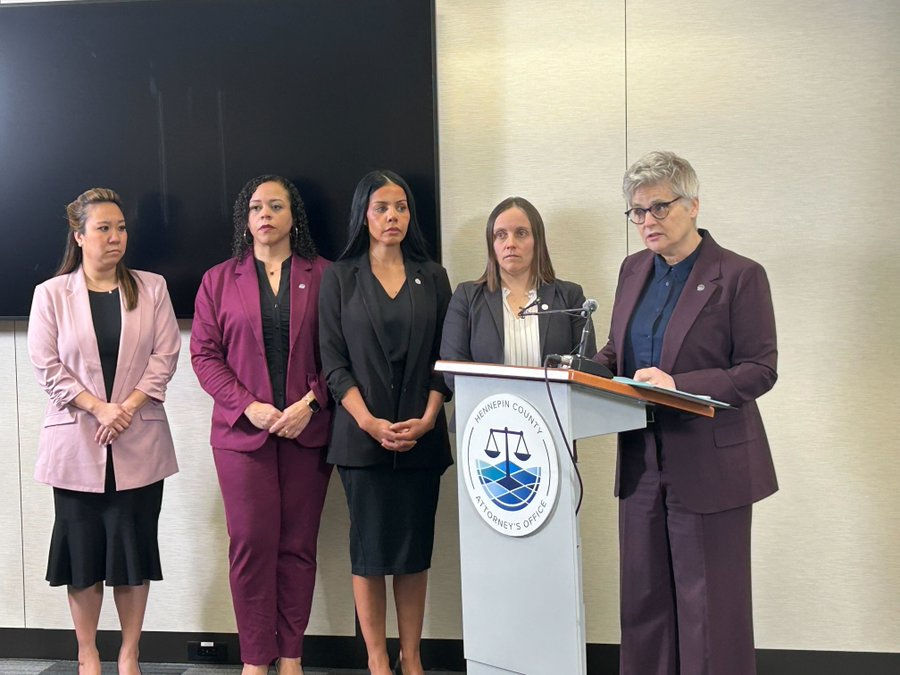Minneapolis Police policies to change with human rights settlement
- Elijah Todd-Walden
- Mar 31, 2023
- 2 min read
Updated: Apr 17, 2024

MDHR Commissioner Rebecca Lucero speaks at a press conference about the settlement between MDHR and Minneapolis regarding police conduct. (Elijah Todd-Walden/BLCK Press)
The Minneapolis City Council voted on an agreement Friday morning that will fundamentally alter the Minneapolis police department’s procedures around crime, use of force and police accountability.
The vote comes after hours of discussion in a closed-door meeting Thursday with Minneapolis Police Chief Brian O’Hara and officials from the Minnesota Department of Human Rights. An investigation by the MDHR found the police department repeatedly violated Minnesotans’ civil rights.
Key components of the changes include: barring officers from searching a person or vehicle because they smell marijuana, barring officers from searching a person for a weapon without reasonable suspicion, barring the police department from using chemical irritants like tear gas as a form of crowd control and limiting the use of pretextual stops.
The agreement also requires the police department to publish an annual report that documents each time an officer faced disciplinary actions after violating police policies.
“The city of Minneapolis is committed to becoming an innovator and industry leader in community safety,” said Community Safety Commissioner Cedric Alexander. “I see MDHR’s work in this settlement as a difficult, yet necessary step in the right direction to further enhance trust and legitimacy between police and community.”
The settlement is a court-enforceable agreement. According to the Minnesota Department of Human Rights, this is the first time a court is requiring the City of Minneapolis to improve public safety.
The MDHR report found that city and police officials used fake social media accounts to follow the movements of Black and Brown community leaders without specific public safety objectives. The city continues to deny those allegations.
“This settlement represents a roadmap to greater accountability, transparency and better training for our police officers,” Minneapolis City Council President Andrea Jenkins said.
The settlement comes after Minnesota Department of Human Rights Commissioner Rebecca Lucero accused the department of stopping, searching, arresting and killing Black Minnesotans “in a pattern or practice of race discrimination in violation of the Minnesota Human Rights Act.”
“Discrimination is expensive,” Lucero said. “It costs the city many millions in settlements… it also costs people their lives.”
The settlement, which does not require the city to admit or agree to the state’s charges, requires the city to create a new unit to implement the changes in the settlement within 60 days. Minnesota courts will now decide how to enforce the settlement.
The City of Minneapolis is still awaiting the results of a U.S. Department of Justice investigation, which could result in another round of court-mandated changes.
Members of the community expressed dissatisfaction with the settlement, saying a more transparent process along with reparations for those who suffered discrimination at the hands of police are key to repairing the relationship between the police and the community at large.






Comments